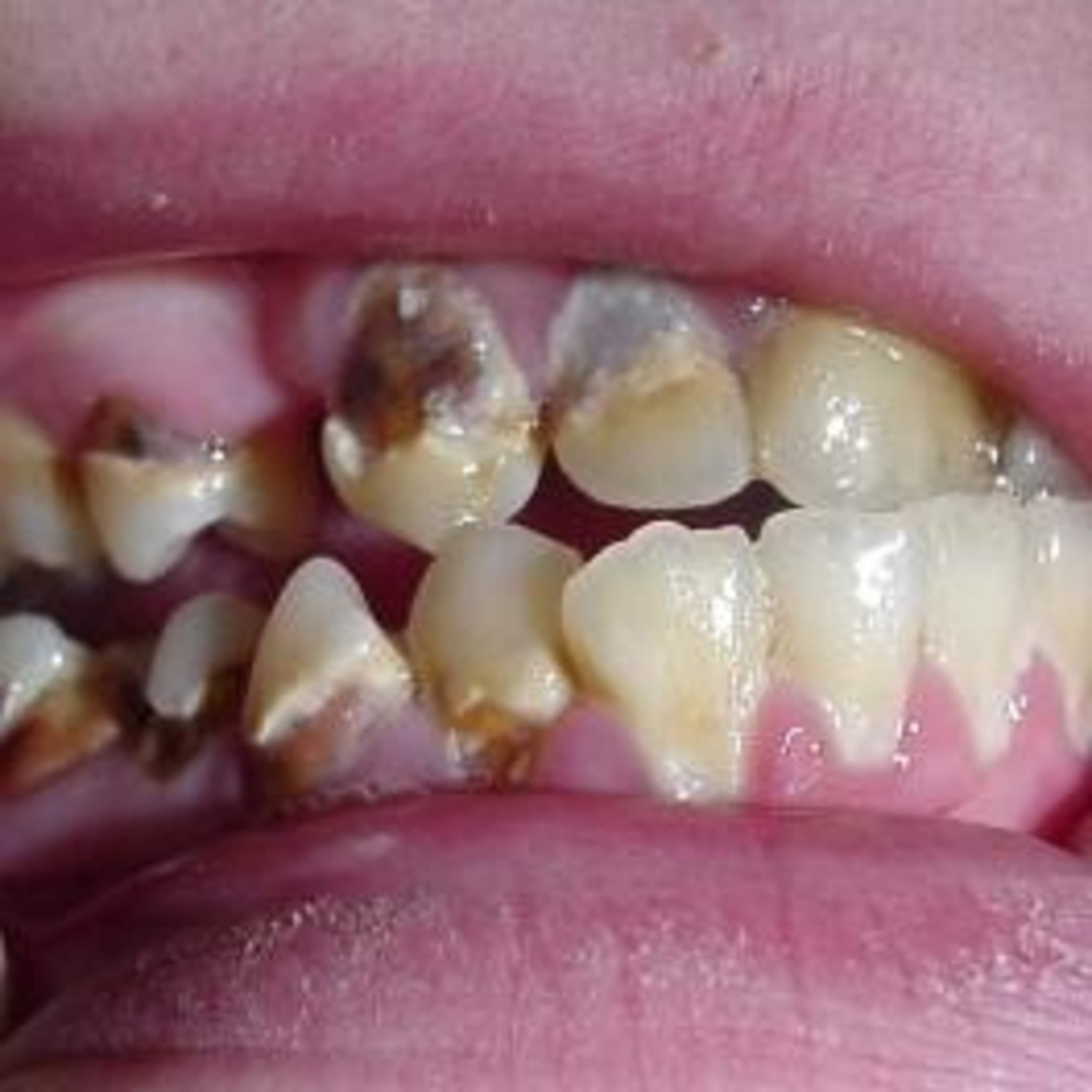
High blood sugar increases the sugar content of the oral fluids, which contributes to tooth decay, especially at the gumlines. The medical term for tooth decay is caries. Tooth decay can take place very quickly.
The amount and composition of the saliva of a person with diabetes can also change. They may produce less saliva as a result of diabetes or the medicines in use. If there is less saliva, it is unable to fix occurring damage. This can result in exceptionally quick tooth decay.
Frequent eating and the related acid attacks or a frequent consumption of sugary drinks or snacks to correct low blood sugar make your teeth susceptible to decay.
An effective prevention plan is made for people in higher risk. It comprises professional self-care guidance, protecting your teeth with products containing fluoride as well as more frequent check-ups and treatment visits.
If a cavity progresses all the way to the dental pulp, the result is a pulp infection and a bacterial infection in the jawbone around the root of the tooth. A person with diabetes also has a higher risk of complications related to a dental pulp infection or root canal therapy. That is another reason why it is so important to prevent and stop caries as well as maintain a good sugar balance.

